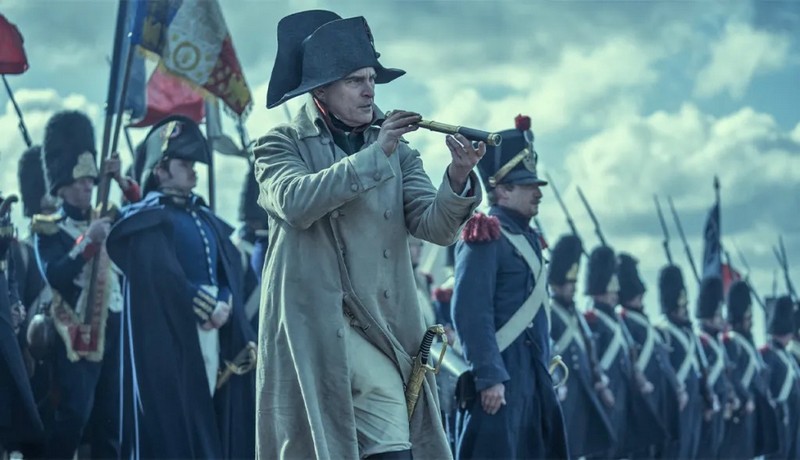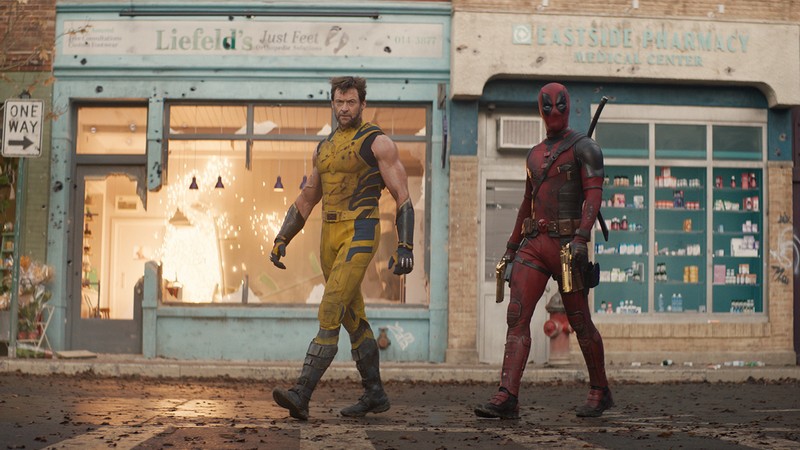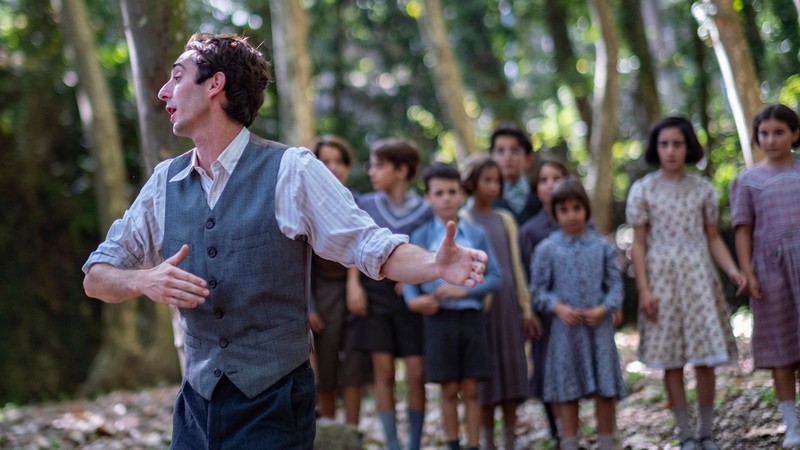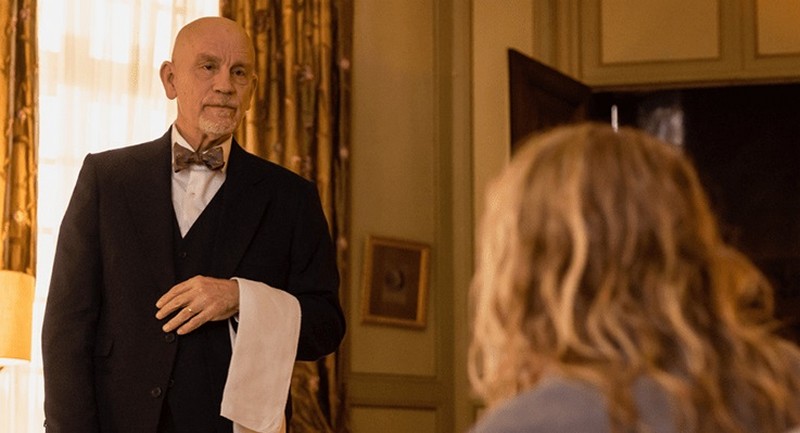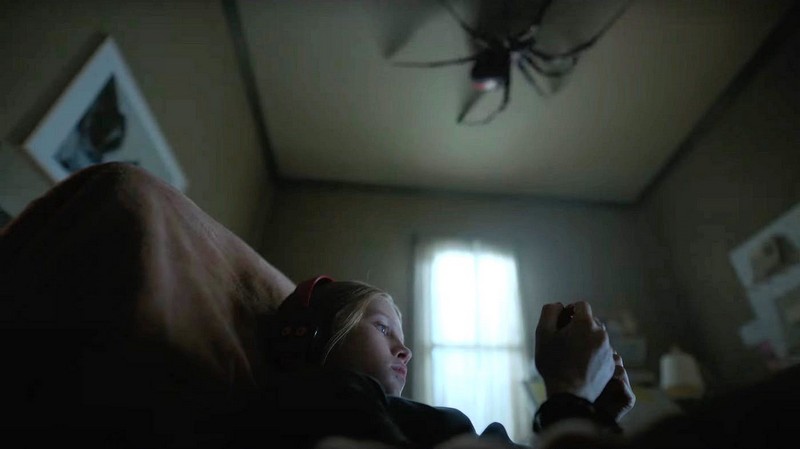Ridley Scott has never been afraid to take risks. That much is evident from his many canonical films including Alien, Thelma & Louise, Gladiator and Blade Runner. But for every Gladiator, there’s a Robin Hood. He seems to have a tendency to always shoot for the stars, sometimes succeeding brilliantly but sometimes falling short. His new film Napoleon is in the fall-short category, even though it still has a lot going for it.
The story of Napoleon Bonaparte has frustrated filmmakers for decades. Stanley Kubrick famously wanted to make a movie about him but the project fell over. Part of the problem of course is that the history of the times is so sprawling and turbulent, any film of conventional length couldn’t possibly hope to come close to capturing it. This film is no exception. Even at 2 and a half hours, it barely scratches the surface of either the history or the character. Apparently, Scott has a 4 hours plus “director’s cut” in the can, but when that will emerge is presently unknown.

The film is basically structured around three key battles – Toulon, which shot him to prominence; Austerlitz, his greatest triumph; and Waterloo, his final defeat. The film also briefly delves into the Egypt campaign and the disastrous march on Moscow. But this of course sweeps over the complex history of the Napoleonic Wars. Trafalgar? The Peninsula? Jena? Nope, not even a line.
In between the battles, Scott gives a bit of background about Napoleon’s (Joaquin Phoenix) rise to power. But the remainder of the film concerns his relationship with Josephine (Vanessa Kirby). Scott depicts their marriage as one of essentially a see-sawing power struggle; one in which Napoleon’s hubris butts up against his possibly obsessive love for Josephine. For her part, Josephine doesn’t hesitate to use her power over him to her own advantage. But she too can’t give up on him, no matter how badly he treats her. Even after the couple divorce over the lack of an heir, their feelings for each other remain strong.
I think Scott’s thesis here is that France’s relationship with Napoleon mirrors Josephine’s. Even though his actions led to the fall of the French Empire and the deaths of some 3 million people, he’s still revered in France. Just search for pictures of Napoleon’s tomb in Paris to get some idea of the esteem in which he’s still held, more than 200 years after his death. So like Josephine, the country still loves him even though he treated them appallingly.
One thing that certainly hasn’t gone over well in France is how Napoleon is depicted in the film. Screenwriter David Scarpa (All the Money in the World) paints him as a decidedly odd duck. And while he had his peculiarities (as we all do) given the lapse of time and the state of historical records, it’s hard to know how much is fact and how much is propaganda from his (many) enemies. Scarpa however does inject moments of humour into the screenplay. Quite a few of those moments revolve around Napoleon’s famous hat, which features prominently.
The set-piece battles are spectacular. This is where Scott excels and he’s one of the few contemporary filmmakers who could pull of something on this scale. The Battle of Austerlitz sequence in particular is incredible, with Scott and DOP Dariusz Wolski (The Last Duel) creating some unforgettable images. However, by the time the climactic battle at Waterloo rolled around, I was suffering from a bit of fatigue.
If you’re into art history, the film directly references several famous artworks, notably Jacques-Louis David’s The Coronation of Napoleon (including a scene which shows David working on the painting), Jean-Léon Gérôme’s Bonaparte Before the Sphinx and Paul Delaroche’s subdued Bonaparte Crossing the Alps (though the scene in the film takes place in Russia).
As mentioned, the film depicts Napoleon as an odd duck, and no one does odd duck better than Joaquin Phoenix (Beau is Afraid). Whatever you might think of the film itself, there’s no denying this is another powerhouse performance from Phoenix. That performance is however matched by Vanessa Kirby (Mission: Impossible – Dead Reckoning Part One), who’s often astonishing as Josephine. Despite a huge supporting cast, none of them get a lot of screen time. Perhaps the most memorable is Rupert Everett (My Policeman) as a delightfully droll Duke of Wellington.
Napoleon is a real mixed bag from Scott. Perhaps due to editing, the film feels quite disjointed. The film trips along picking out key moments; so a scene might take place years after the scene before it. Maybe the “director’s cut” will remedy that. For what it is presently though, Napoleon felt to me like a series of often wonderful moments but lacking a compelling narrative thread.
David Edwards
Other reviews you might enjoy:
- Alien: Covenant – movie review
- Don’t Worry, He Won’t Get Far on Foot – movie review
- You Were Never Really Here – movie review

David Edwards is the editor of The Blurb and a contributor on film and television

